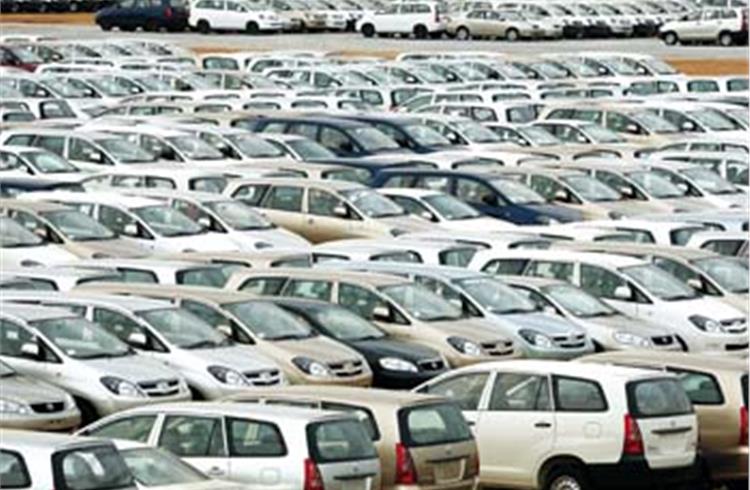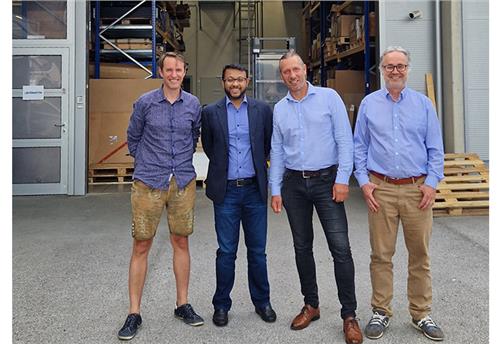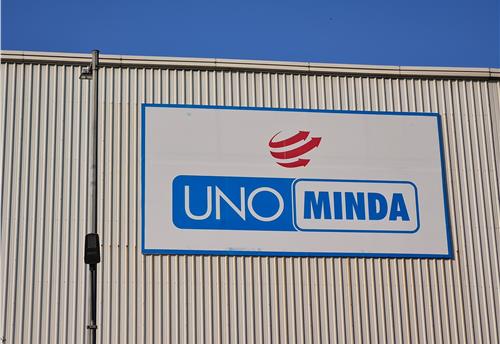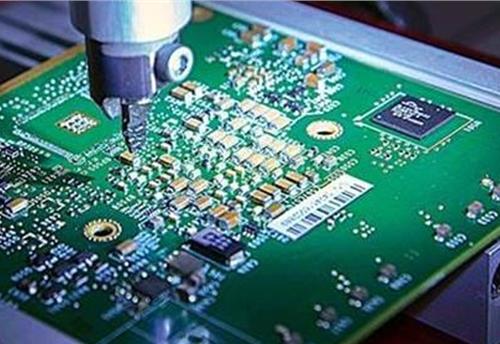Manufacturers slam on the brakes
Vehicle sales have come under increased pressure during the past few weeks as higher interest rates and continued difficulty in obtaining finance have dampened demand.
According to the SIAM report for October 2008, most of the leading truck, car, utility vehicle and two-wheeler manufacturers have slashed their production by between 20 and 40 percent compared to the same month last year. This is having an increasingly adverse impact on component manufacturers at a time when they are already struggling with rising input costs. In this scenario they fear a ‘winter of despair’, according to their industry body ACMA and have appealed for help from the government.
According to Dr Pawan Goenka, president, Auto Sector, Mahindra and Mahindra, “We do expect soft demand for utility vehicles at least in the next two months. Our production will be in line with demand and we would be extra careful not to add inventory in our plants or at our dealerships. There is too much uncertainty to predict with certainty how things will develop in the next few months and it all depends on the availability of money in the market for vehicle financing. This is the key factor affecting demand for vehicles. However, I do feel that interest rates should come down in the next few months. I also think that component suppliers will be affected by this slowdown just as much as manufacturers.”
Commercial vehicle market leader Tata Motors has also seen a dramatic decline in the sales of trucks. It says that as has been seen in October 2008 across the industry, unavailability of finance, coupled with high interest rates, is forcing customers to postpone purchases. Commercial vehicle sales are particularly affected by this since 95 percent of them are purchased on finance.
Different segments of the automobile industry have been impacted to different levels. This, Tata Motors says, will call for appropriate action from time to time to match production with demand and avoid unnecessary build-up of inventory in the company or with its dealers. However, it confirmed that its Pune passenger car plant is working in its normal manner. Already the company had shut its commercial vehicle plant at Jamshedpur from November 6 to 8. This plant produces tractor-trailers, multi-axle vehicles and tippers and the last such closure was back in 2001. The company also plans to close its Lucknow commercial vehicles plant from November 15 to 20 and its Pune truck plant from November 21 to 26 given the continuing weakness in demand.
Meanwhile, its rival Eicher has also trimmed production in October 2008 to keep pace with slackening market demand. The company believes that in the current economic scenario, the availability of retail finance has been severely impacted, which has led to the sharp drop in demand for trucks. The liquidity crunch coupled with stricter lending norms and high interest rates have dampened buyer sentiment and led potential CV customers to defer purchase decisions. Ashok Leyland has said that it too plans to keep its plants closed for three days every week till December this year and would result in a 50 percent cut in its production.
Passenger car manufacturer Hyundai agrees that there is a slowdown in momentum as far as it is concerned. However, it feels that it is slightly better off than others and could still sustain growth this year. Nevertheless, it is at the moment seeing a drop in its exports as well as weakness in domestic demand. The company feels that the market situation as far as passenger cars is concerned should improve.
Parts makers belt up
Component manufacturers like Bosch are well aware of the tough times that lie ahead for the industry. According to managing director V K Viswanathan, “Both commercial vehicle makers and their suppliers will be hit hard by this slowdown in demand. Both need to be proactive and flexible in order to meet the challenge. The two major areas of concern are high inventories and overdue receivables, which would exert further pressure on margins. It is very difficult to forecast how the situation will develop in the future; however, it is likely that the slowdown may persist for the next six to nine months unless the government steps in and takes some effective steps to revive the economy.”
Striking a more upbeat note, he said “Inspite of the current slowdown in production and sales, the medium to long term growth forecast remains very positive. As far as investments by global automakers like Renault, Nissan and Volkswagen are concerned, there may be some postponements or delays in investment but no cancellation of expansion plans is expected. However, the real impact of the decline in exports of components to global automakers from India could be seen in 2009.”
In a similar vein Ashok Ramaswamy, president and managing director, Delphi India said “The slowing growth in the automotive sector this year may get even slower next year. Yet the long term prospects look good and we still see India having significant long term growth potential. This is why we are continuing with the expansion of our electronics manufacturing footprint in the country.”
Meanwhile Deepak Jain, executive director, Lumax says “There is definitely an economic slowdown and in such an environment the automotive industry is the first to feel the heat. The industry is in for a tough time and we need to get liquidity into the system. But remember, this is not the first or the last time that the industry is facing a slowdown as it is cyclical in nature. Companies need to get more aggressive and watchful during such times and also exercise caution. The component industry is dependent on the vehicle manufacturers and any slowdown the latter faces, affects us just as much if not more.”
According to Donald Anderson, Country Head - Lubricants, Shell India “obviously the lubricant industry is linked to the automotive industry. Thus we too are hit in a way, and for that part of business which we call the initial fill. But there is a huge parc of cars and trucks in the market which would continue to generate revenue for us.”
Industry experts like KPMG’s Yezdi Nagporewala who is the national industry director, industrial markets and heads the firm’s automotive practice, says: “Cutbacks in global production may not have too significant an impact on Indian auto component exports, for two reasons. Firstly, most Indian components exported from India cater to the aftermarket segment in other countries. This segment will require parts, irrespective of the slowdown in new vehicle production and sales. Secondly, India’s share in the global automotive component trade is still quite small, and consequently the relative impact will be less. However, production cutbacks by domestic manufacturer like Tata and Ashok Leyland will have an adverse impact on the sales the Indian component industry. It is difficult to say how this situation will develop in the coming months since it is affected by financial aspects like interest rates, the availability of funds, foreign exchange rates and so on. As far as the committed investments of global automakers are concerned, they would be implemented as the future growth potential of the Indian market is still good. These short term fluctuations are not likely to set back any of the long term investment plans. The silver lining in the current slowdown is that it will force companies to streamline their operations and increase their efficiency.”
ACMA takes up cudgels
Given the existing scenario, ACMA is deeply concerned about the immediate future growth prospects of its members. “At an emergency meeting of ACMA’s executive committee to discuss the current economic crisis and its impact on the auto component manufacturing sector, the Association has voiced the need for an immediate redressal package comprising of a two- to three-year ‘bridge policy’ to enable the industry to survive the current economic crisis,” said J S Chopra, president, ACMA.
While ACMA says that it remains very positive about the long term prospects of the automobile and component industries, the short term poses daunting challenges that have dampened the mood and affected the earlier positive mindset of the industry. It feels that this may lead to a slowdown in capital expenditure, if the liquidity in the financial system does not improve and interest rates do not decline.
It also says that payments from manufacturers to vendors are getting delayed, loans for capacity expansion are difficult to secure and even disbursement of loans already approved by the banks are being deferred.
Another dampener has been the exchange rate which remains very uncertain, with the strong dollar already increasing the landed cost of imported machine tools and raw materials by 14 percent. This has resulted in higher prices for domestic commodity pricing and inflation continues to remain a concern at 11 percent. Meanwhile, ACMA says that raw material prices have also not gone down significantly. Alloy steel prices remain particularly strong and have not shown reduction inspite of reductions in the price of alloying elements like nickel, molybdenum and chromium. Another concern within ACMA is that steel manufacturers are seeking the re-imposition of customs duty on steel which would further push up prices.
On the export front, the Association says that global outsourcing to large traditional markets like the USA has seen a reduction of 30 to 40 percent. Small and medium enterprises are the worst affected says ACMA since they lack the financial muscle to withstand such declines. Overall export growth has slumped to just six percent in the April to September 2008 period as compared to the 25 percent compounded annual growth over the last five years. Total export of automotive components from India was US $ 3.6 billion in 2007-08.
On the other hand, it says that imports of components continue to rise unabated at a high growth rate of almost 50 percent, with total imports growing to US $ 5.3 billion during 2007-08. Consequently, India today, is a net importer of auto components.
Inspite of the current challenges, the future is still bright for the Indian automotive industry. However all the players need to use this time to streamline their operations and become more efficient and lean so that they can reap the rewards of growth in the coming years.
RELATED ARTICLES
Naxnova acquires Austria based Advanced Thermal Technologies
This strategic move follows Naxnova's recent acquisition of Belgium-based Quad Industries.
Uno Minda lays foundation for Rs 542-crore greenfield alloy wheel plant in Haryana
The plant with a capital outlay of Rs 542 crore will be set up in a phased manner over the next five years, with phase 1...
Tessolve and NXP collaborate for productisation of digital connected clusters for mass-market two-wheelers
This collaboration aims to deliver an industry-leading solution to OEMs, offering sophistication and ease of integration...





 By Autocar Pro News Desk
By Autocar Pro News Desk
 20 Nov 2008
20 Nov 2008
 2000 Views
2000 Views









